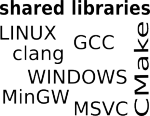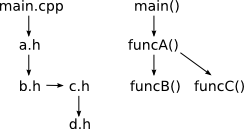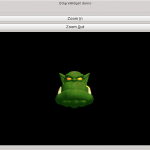distcc is a program to distribute compilation of C, C++, Objective C or Objective C++ code across several machines on a network.
Just evaluated distcc for building a ~1,4 Mio lines of code C++ code base on Linux with GCC. My local machine is already quite powerful. I usually build on 8 cores simultaneously (ninja -j8) with some quad-core Intel i7 and a quite fast SSD. A full build takes ~26 minutes.
→ Read More
→ Read More





